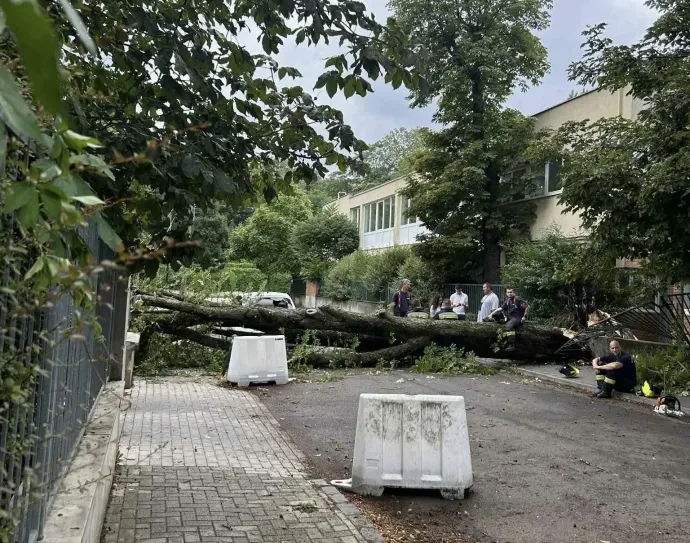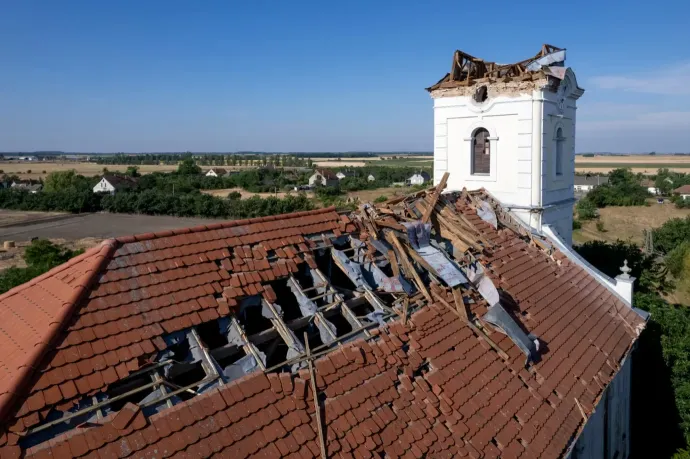Huge thunderstorms wreak havoc throughout Hungary
The brutal cold snap that reached Hungary on Monday accompanied by extremely strong winds and a series of thunderstorms left behind apocalyptic conditions. In several areas of the country, winds reached 130 km per hour and arrived alongside hailstorms.
By Tuesday morning, more than 6500 storm-related incidents had been reported to the emergency services, fire departments and municipal and volunteer fire departments across the country. Firefighters were most frequently called on to clear up branches that had broken off trees or to remove trees that had been uprooted and had fallen on roads, cars, etc.
Several buildings were damaged by the winds, including one of the buildings of the University of Szeged and the roof of the National Széchenyi Library.

At one point, 366,000 households were left without power due to the storm, Budapest Airport had to be temporarily closed because the wind had strewn debris all over the runways and the state railway company, MÁV declared the capital and the region around Lake Balaton a railway disaster area. Minister of Construction and Transport János Lázár said that
Monday may have been the worst day MÁV has ever had.
According to information released by Mávinform, despite the significant damage Monday’s storm inflicted on the railway infrastructure in several regions of the country, by Tuesday morning, services resumed on most affected lines according to schedule.

Speaking in a Facebook video on Tuesday morning, Minister Lázár reiterated that the MÁV-Volán group had been through an exceptionally difficult night. The storm affected a total of 1500 trains and 800,000 passengers on Monday. Their teams had worked on repairing the damage caused by the storm throughout the night. He added that their main focus had been on clearing the main lines, as there were several locations where resuming services was not possible until the trees and the utility poles supporting the electric network which had fallen on the tracks were removed. He said that
on some railway lines it will be weeks before traffic can return to normal and used the Balatonfüred line as an example, where the company is facing “enormous problems and challenges”.
Until necessary, thanks to Volán, they are able to have hundreds of buses substitute the trains on the lines in question.
In a statement published on his social media account on Tuesday morning, Budapest Mayor Gergely Karácsony said that the assessment of the damage caused by the storm in the city was ongoing. He noted that Óbuda island had suffered the most damage and explained that several areas of the island would have to be closed to the public for a few days due to the risk of accidents.“Since last night, firefighters have been working at nearly 100 locations throughout the capital to remedy situations brought about by the storm. Public transportation is operating smoothly in Budapest,” he added, and thanked the firefighters for their efforts.
For more quick, accurate and impartial news from and about Hungary, subscribe to the Telex English newsletter!